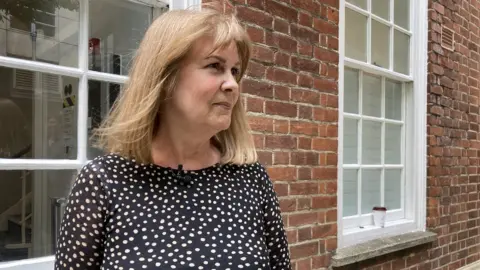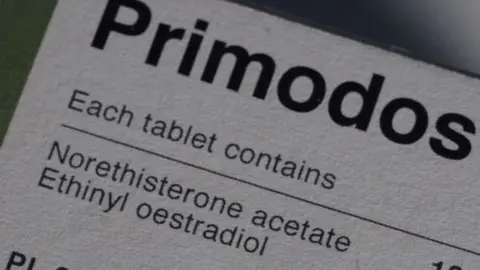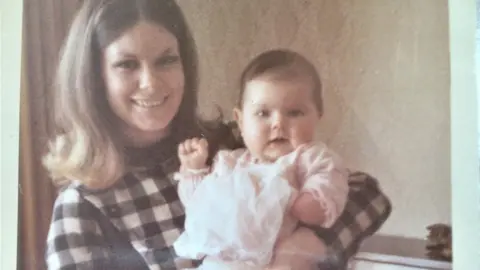Primodos victims 'airbrushed' from financial help
 BBC
BBCFamilies who say their children were harmed by a hormonal pregnancy test feel they have been "airbrushed" from a scheme proposing financial help.
Primodos was given to more than a million women in the UK in the 1960s and 70s.
The scheme by the Patient Safety Commissioner recommends urgent monetary support for patients damaged by an epilepsy drug and pelvic mesh implants.
The Commissioner is urging ministers to support Primodos families.
Women were prescribed two Primodos pills to detect if they were pregnant. If there was no pregnancy, it would trigger a period.
The tests were withdrawn from the market in 1978 and families have argued for decades that it was responsible for birth defects, miscarriages and stillbirths.
The manufacturer, Schering, now part of Bayer, has always denied a link and last year a Court judge ruled there was no new evidence linking the tests with foetal harm.
In 2020, the First Do No Harm review of Primodos, pelvic mesh implants and the anti-epilepsy drug sodium valproate, found avoidable harm had been caused by failures in the healthcare and regulatory system affecting tens of thousands of lives.
This led to a government apology and the appointment of England's first Patient Safety Commissioner, who is tasked with giving patients a voice.

However, the first major report by the Commissioner, Dr Henrietta Hughes, has only looked into financial redress for those damaged by pelvic mesh implants and sodium valproate, which she says should be provided by the government urgently.
The report states the terms of reference did not include the issue of hormone pregnancy tests and that this was a decision taken by the Department of Health.
Marie Lyon gave birth to a daughter with limbs that were not fully formed, after being prescribed Primodos. She has been campaigning for nearly 50 years.
"The fact that we were excluded from this report is devastating, because it's as if the families don't matter," she says. "The Primodos families have been airbrushed."
"Mums like me all feel guilty, we took those tablets and our children were damaged, or they died.
 Marie Lyon
Marie Lyon"At the moment we're looking after the physical and mental needs on our own. We don't get anything from the state. There's no help."
Dr Hughes says she hopes her recommendations will act as a blueprint for redress for any harmed group of patients: "There are so many examples where the views and voices of patients aren't immediately listened to and acted upon.
"I hope that the government will be able to use the information in the report to identify those who have been harmed and then look for ways of supporting them, and that would include Primodos families."
The Commissioner's ten recommendations are now being considered by governments across the UK.
A Department of Health and Social Care spokesperson said: "We remain hugely sympathetic to the families who believe that they or their children have suffered following the use of hormone pregnancy tests.
"It is right that the government is led by the scientific evidence and after reviewing the available evidence, the government's position remains that the available evidence does not support a causal association between the use of hormone pregnancy tests and adverse outcomes in pregnancy.
"We are not closing the door on those who believe they have been affected and have committed to reviewing any new scientific evidence which may come to light."
